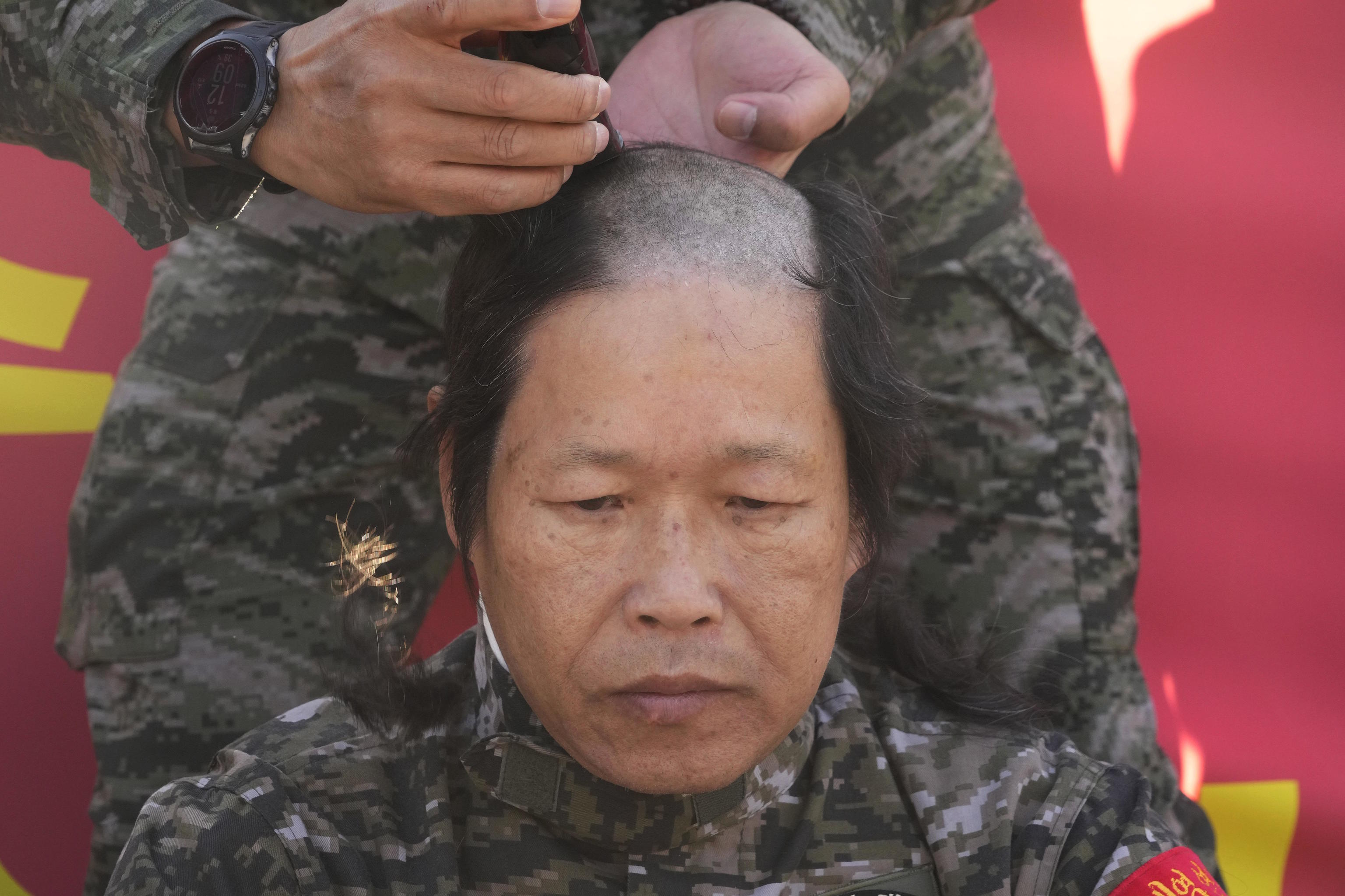The military returned to the South Korean Parliament on Thursday. Unlike last time, they were not there to forcibly enforce a martial law decreed by the president. The same politicians who a couple of nights ago had to use fire extinguishers to avoid being detained by soldiers and enter the legislature to overturn with their votes the authoritarian decree of the leader, invited this time the top military officials to provide explanations about the failed coup attempt.
Parliament has held a hearing on President Yoon Suk Yeol's brief martial law, under scrutiny due to the motion of censure presented the day before by the opposition.
The president is also being investigated by the police for alleged "insurrection" following his declaration of martial law. Police sources confirmed today to local media after opposition parties filed a complaint against Yoon. Insurrection is a crime that transcends presidential immunity, so he could be prosecuted and could even face the death penalty.
Several high-ranking Defense officials have appeared before Parliament on Thursday, such as General Park Ahn-soo, who presented himself early Wednesday as the "martial law commander." Both Park and another important witness, Deputy Defense Minister Kim Sun-ho, stated that they were not informed of President Yoon's plans until after he appeared on television Tuesday night to declare martial law. They also directly pointed to Kim Yong-hyun, the Defense Minister, as he would have been responsible for sending troops to the National Assembly to stop the opposition politicians' vote against the decree.
Kim, the minister, publicly apologized on Wednesday and submitted his resignation to the president, which was accepted on Thursday. Several lawmakers from the ruling People Power Party have also accused Kim of being behind the failed attempt to impose a state of emergency, shifting the blame from Yoon despite other testimonies from the president's cabinet stating that the initiative was the leader's but supported from the beginning by his Defense Minister.
While small crowds were returning throughout the day to the vicinity of Parliament to continue protesting against Yoon, news broke that the besieged president's party would support him in the motion of censure. "The 108 legislators of the People Power Party will stand united to reject the president's impeachment," said party leader Choo Kyung-ho.
The impeachment process can proceed if two-thirds of the 300 parliamentarians of the National Assembly support it and then at least six of the nine members of the Constitutional Court do the same. This entire process could last more than 100 days. Although opposition groups wanting to oust the president have the majority in Parliament (192 seats), they need at least eight legislators from the ruling party to support them. The vote, according to local media, is scheduled for Saturday afternoon.
"President Yoon Suk Yeol's declaration of a state of emergency caused great confusion and fear among our people. The protesters who were at Parliament protected us with their bodies so we could enter and vote against martial law. The people won, and now it's time for us to protect the people," said Kim Seung-won of the Democratic Party, the main opposition force, during Thursday's session.
"We must immediately suspend President Yoon's authority. He has committed a historic crime against the people, whose anxiety needs to be relieved so they can return to their daily lives," Kim concluded. If Yoon were forced to resign, it would be Prime Minister Han Duck-soo, a technocrat who served as ambassador to the United States, who would take his place.
